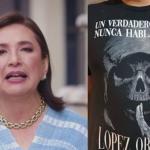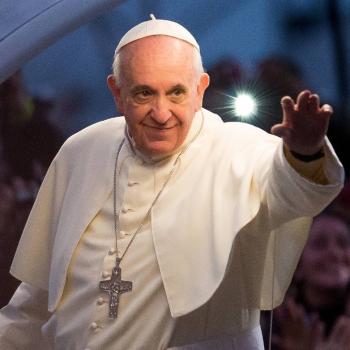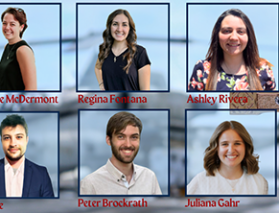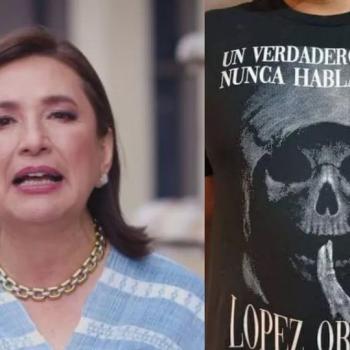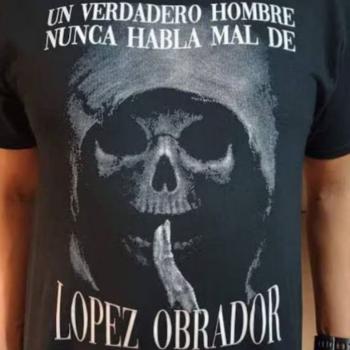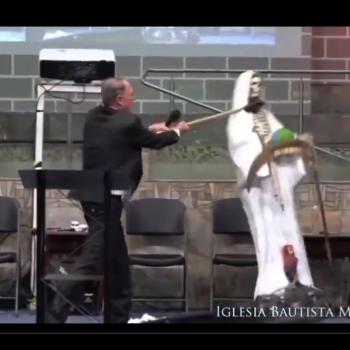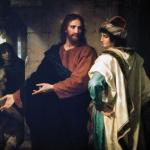One of the disturbing new trends on the diverse religious landscape of Brazil is Pentecostal intolerance and even persecution of its religious rivals. Over the past five decades Pentecostalism has mushroomed in the South American giant to the point that Brazil is now not only home to the largest Catholic population on the planet but also the most numerous Pentecostal one. Before the Pentecostal boom, it was the monopolistic Catholic Church that persecuted both Protestants and followers of Umbanda and Candomble, the two main Afro-Brazilian religions.
On the vast sugar plantations of the Brazilian Northeast, enslaved Africans were forced to camouflage their devotion to the Orixas, or deities of Candomble, by associating them with Catholic saints. For example, Ogum, the warrior god, was syncretized with English patron, Saint George. Similarly, Pentecostals in the first decades of the 20th century were often forced to hold their river baptisms in remote areas under the cover of darkness lest Catholic mobs, incited by parish priests, pelt them with stones while screaming profanities at them for abandoning the “one true faith.”
But long gone are the days when Catholicism was the primary persecutor of religious rivals. Starting in the 1980s with the dramatic growth of Neo-Pentecostal denominations, most importantly the controversial Universal Church of the Kingdom of God (UCKG) led by billionaire bishop, Edir Macedo, zealous young Pentecostals began to persecute followers of Umbanda and Candomble, raiding their terreiros (places of worship), desecrating altars and sometimes even physically assaulting the mothers and fathers of the saints, as the ritual leaders are known.
During the 1980s and 90s Umbanda and Candomble were the main victims of Pentecostal persecution, but there were occasional assaults on Catholicism, such as the infamous “chute na santa” (kicking the saint) incident in which UCKG bishop, Sergio von Helde, drop-kicked and punched a statue of Brazilian patroness, the Virgin of Aparecida on live TV!
The latest act of Pentecostal persecution has targeted both Catholics and practitioners of Umbanda and Candomble in Rio de Janeiro. Pentecostal drug lord Álvaro Malaquias Santa Rosa, aka Peixão (Big Fish), ordered the closure last weekend of Catholic churches and the worship centers of the Afro-Brazilian religions of Umbanda and Candomble in Complexo de Israel, a district of Rio de Janeiro composed of five favelas with under his control.
Catholic churches in the Brás de Pina and Parada de Lucas favelas, in the north of the city, were prohibited from holding masses and church activities, last Saturday by order of Peixão. According to complaints from residents, armed gangsters descended on the parish churches and forced them to close.Despite the reports and confirmation that the churches are shuttered, the state government of Rio de Janeiro denied the information and stated that the Military Police “guarantee the safety of the faithful.”
In statements on social media at least three churches in the region reported the temporary suspension of services: the Parish of Nossa Senhora da Conceição and São Justino, in Parada de Lucas; the Santa Edwiges Parish and the Santa Cecília Parish, both in Brás de Pina. The reason for the suspension was not disclosed.
“Jesus, Mary, Joseph, beloved brothers, an important announcement: Parish activities (masses, meetings, secretariat, etc.) are suspended until further notice. We ask for the collaboration and understanding of all the faithful, and we will soon update you on the resumption of activities,” stated the Parada de Lucas church.
In Santa Edwiges, the festival of Saint John, which was scheduled for this weekend, had to be postponed. The parish reported the cancellation but deleted the publication hours later. “We inform you that our festival is suspended this weekend. We will not have Holy Mass and activities in our parish either. Church closed. We will return soon with more information,” explained the statement. A resident of the region, who asked not to be identified, said that, despite the normal street traffic in the affected communities, the churches were closed. According to residents, there was no celebration of mass this past Saturday.
The Israel Complex was named by Peixão, who like many Latin American and American Pentecostals, have appropriated symbols of Judaism, such as the Star of David. The drug lord is identified as the leader of the Third Pure Command Puro ( Terceiro Comando Puro orTCP) cartel and is infamous for his persecution of practitioners of Umbanda and Candomble.
Peixão has expelled residents from the TCP’s areas of influence simply for practicing their Afro-Brazilian religions, and has ordered his foot soldier to destroy and desecrate Umbanda and Candomble house of worship.There are nine outstanding arrest warrants against him, most of them for drug trafficking, murder and hiding a corpse.
The symbols used to mark the territories that Peixão controls are the flag of Israel and the Star of David. These symbols are usually placed at high elevation in the communities. An example is in Cidade Alta, where a Star of David was installed and can be seen from more than a mile away.
In July of last year, the Military Police located three of the drug lord’s luxurious residences in the Para-Pedro community. In one of the houses, a large recreation area was found, with a swimming pool, artificial lake, pedal boat and artificial turf. In another residence, discovered by the Civil Police two years ago, agents came across a huge mural next to the pool depicting the city of Jerusalem, with images of soldiers and the symbol of the Star of David, alluding to the Israel Complex. Inside the house there was a gym equipped with the latest equipment, a bathroom with jacuzzi and a kitchen with brand new appliances.
Over the past couple decades Neo-Pentecostal gangsters in the notorious favelas (slums) of Rio de Janeiro have largely replaced older gangs that identified more with Afro-Brazilian religions. Conversions to the Pentecostal gang, “Bandits of Jesus,” have allowed gangsters to develop a more positive image among residents of the favelas, and they are welcomed into the churches in part for their ability to provide protection services for members and especially church staff.
In this way the Pentecostal identity of gangsters can be beneficial for their illicit business. The bonds formed in the churches afford mutual protection in which the code of silence on the part of members helps protect the Neo-Pentecostal narcos from law enforcement and rival gangs. Neo-Pentecostal discourse, rooted in Prosperity Theology, focuses on attacking religious rivals, most importantly Umbanda, Candomble, and Catholicism.
In the case of Afro-Brazilian religions, Neo-Pentecostal discourse is particularly aggressive, feeding off the Brazilian imaginary in which they are viewed as demonic faiths and as such must be combatted and destroyed. Church members must be divine agents who destroy terreiros and Afro-Brazilian “idols.” In this Holy War the narco-converts are the powerful foot soldiers expanding their criminal networks.
Among the Neo-Pentecostal criminal groups “the Jesus Gang” of Rio has made recent headlines for conducting a campaign of religious terrorism against Candomble terreiros in the Rio district of Duque de Caxias. 21 members of the Jesus Gang were arrested with 8 being jailed and one killed by Rio police. The leader of the Jesus Gang, known as `Peixão´ (Big Fish), is also an influential member of the Pure Third Command (Terceiro Comando Puro [TCP]), a powerful Rio crime syndicate.
The TCP ranks as the third most powerful crime syndicate in Rio and has a strong Pentecostal imprint. It seems the TCP was born of a split with the Red Command (Comando Vermelho) in the 1980s. Fernando Gomes de Freitas, aka Fernandinho Guarabu, is one of the most prominent leaders of the gang. Rio police estimated in 2007 that he was earning at least $36 million a month from drug trafficking and other illicit activities headquartered on Ilha do Governador, close to Rio’s international airport. That same year Fernandinho converted to Pentecostalism and as proof of being born again he had “Jesus Cristo” tattooed in big print on his forearm.
Unfazed by their own demonic activities, the TCP and Jesus Gang have been carrying out a terrorist campaign against Umbanda and Candomble terreiros in the barrios under their control. In the prisons, where many narcos convert to Neo-Pentecostalism, pastors demonize Afro-Brazilian religions preaching that the Exus (liminal trickster spirits) of Umbanda, for example, are the cause of their suffering.
Once out of prison, the new converts join the Jesus Gang and others that raid the terreiros with the goal of chasing them out of the barrios under their control. The Holy War against the priestesses and priests of Umbanda and Candomble isn’t only aimed at extirpating the ‘evil spirits’ from the barrio but also fortifying Pentecostal dominion by imposing their evangelical faith as the hegemonic one in the barrios under their control.
Even though Pentecostal gangs have been persecuting followers of Umbanda and Candomble for more than a decade now, there’s been an uptick in raids and desecrations of terreiros in Rio since the recent presidency of Jair Messias Bolsonaro (2019-22). The “savior” of Brazilian Evangelicals, Bolsonaro was elected with 70% of the Evangelical vote and undoubtedly with at least 80% of the Pentecostal electorate who constitute 75% of all Brazilian Protestants. Despite the current administration’s declared intolerance of religious persecution, Peixão and his Pentecostal gangsters have been able to continue their harassment of Catholics and practitioners of Umbanda and Candoble in the five favelas that constitute the Israel Complex.
Co-authored by Dr. Ana Keila Mosca Pinezi* and Dr. Andrew Chesnut
*Dr. Ana Keila Mosca Pinezi is Professor at the Universidade Federal do Triângulo Mineiro (UFTM) in Brazil where she researches matters of religion and society. She is the author of several books and articles, such as`A vida pela ótica da esperança: um estudo comparativo entre a Igreja Presbiteriana do Brasil e a Igreja Internacional da Graça´, Editora da UFABC, 2015. Follow her on Twitter.
Special thanks to Dr. John Sullivan for alerting me to the latest round of persecution.


